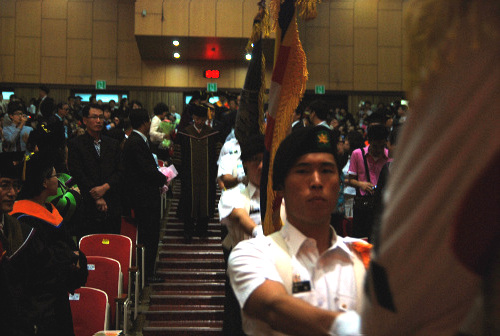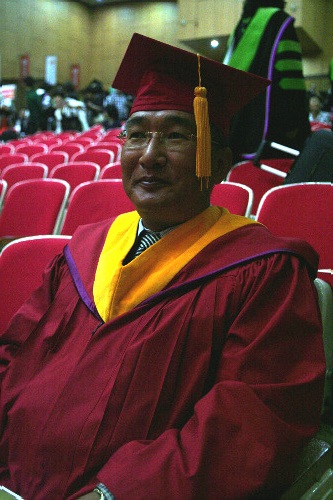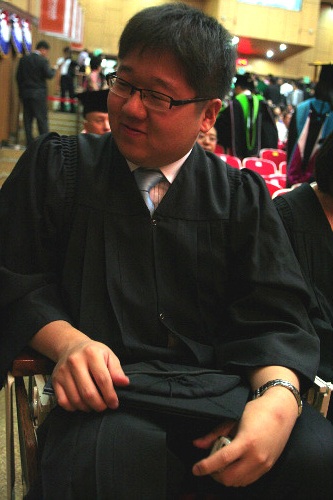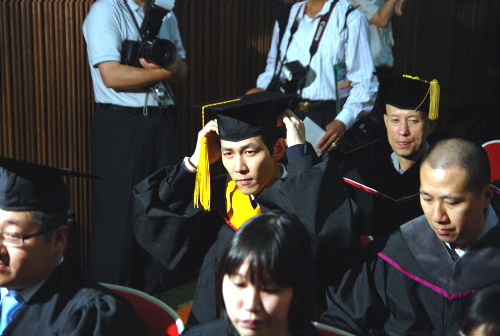
2008년도 가을학위수여식은 졸업을 앞둔 졸업생들은 물론 후배들의 함성소리와 가족들의 격려의 목소리로 강당을 가득 메웠다.

현역 군인 장대석씨는 이번 학위 수여식에서 안보북한학과 석사학위를 받았다. 장대석 씨는 “학교 측에서 학비 지원을 해준 덕택에 원하는 공부를 할 수 있는 기회를 얻을 수 있었다”며 “학교 측의 배려에 고마움을 느낀다”는 소감을 밝혔다.

사학과를 졸업하고 대학원에 진학할 예정인 권경택 군.
“대학교 4년 동안 학과에서 다양한 경험을 할 수 있어서 기억에 남는 것이 많다. 다시 한번 기회가 된다면 대학교에 다시 다니고 싶다”며 졸업에 대한 아쉬움을 표했다.

이신혜 수습기자
leeshin@dongguk.edu

